Nishi Pulugurtha is academic, author, poet and translator. She writes short stories, poetry, on travel and non-fiction and has published works in them apart from several academic writings including the edited volume, Literary Representations of Pandemics, Epidemics and Pestilence (Routledge, 2023). Her co-edited translation work, a book on food and a fourth volume of poems are forthcoming. She was Writer in Residence 2023 at Samyukta Research Foundation, Thiruvananthapuram and is Secretary, Intercultural Poetry and Performance Library (IPPL), Kolkata.
- Tell us about your journey till now, how has your writing style evolved over time?
My writing journey began late. It began with prose , with writing on travel chiefly. Poetry was something I wrote privately. I began to publish poetry much later. Poetry was something that I always enjoyed reading. I enjoy teaching it too. My PhD too was on poetry.
As I look back I am sure it has evolved much. Each of what I have written in the several genres of writing has in some way or other influenced the poems I write, or attempt to write.
My association with the Intercultural Poetry and Performance Library (IPPL) has been a strong influence in my writing more poetry. The close connection with a group of people who enjoyed reading poetry, the discussions, the interactions, the readings led to an immersive experience where poetry became an even more integral part of my world. This time poetry that I wrote and shared, poetry that I read and heard responses to, poetry that helped us make connections.
My first volume of poems, The Real and the Unreal and Other Poems was published in 2021. In 2022 was published my volume of form poems that I wrote during the lockdown months – Raindrops on the Periwinkle. The same year was also published an anthology of poems written by IPPL members in response to Sunday prompts during the pandemic times. This volume, Voices and Vision: The First IPPL Anthology was a volume that I co-edited. In 2023 was published my third volume of poems, Looking. A fourth volume of poems is forthcoming.
- Can you name a recurring image or metaphor in your work, and explain its significance?
Nature figures a lot in my poems, the world around me, the things that I see and observe as I go about my work. The world that I see around me is what I think finds a way into my poems. The absolutely routine, the small flowers in my backyard, that kite that I notice dangling on a branch, something that I might have seen on a travel somewhere.
I love taking photographs and at times what I see and record in the photograph becomes a poem, or an element in a poem that I am writing. It is not that I am always out to click, I click on the go – on the way to work, out on an errand, whatever strikes my eye. At that time I am just reacting to what I see. I have no specific plan. Later as I sit down to write several images coalesce.
- What’s your writing routine, ritual or process?
I do not have any routine. I write when I feel like it, when I get some time. I write when work gets too stressful. I wish I could get more time to write what I enjoy writing. There are times when I write regularly and times when there is a hiatus. A routine would be really good, however, it is something that I am unable to come up with.
I begin with an idea, scribbling notes (depending on what I am writing), some points here and there and then go on to develop the ideas over a period of time. I work on several drafts, at times taking a break from a work and then going back to it after a while to work on it.
- How do you see yourself in the intersection of the world we live in and the poems you write in your solitude? Do you think poetry has the power to influence social change?
I write about the world around me, about things that affect me. Poetry is not disconnected from the world that I live in. I respond to the happenings in the world just like any other person. Some of what affects me becomes the subject of my poems.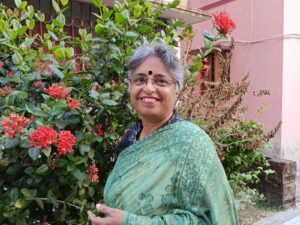
Some years ago I decided to write a poem on dementia. This is a cause with which I am closely connected. My mother had Alzheimer’s Disease and as her primary caregiver I had seen what the condition does. I wrote on my personal experiences of caregiving. My purpose in writing about it was to create an awareness. When the pieces were published people reached out with their stories as well.
I had never written a poem on the subject then. I thought it would be a good experiment to write a poem on the condition. I wrote the poem “Lost Things” and shared it on social media. The engagements with the poem and its reception led me to write many more poems on the condition. My first volume of poems, The Real and the Unreal and Other Poems had a section titled ‘Dementia Poems’ that had ten poems on the subject. My later volumes too had poems on the subject, I even wrote senryu on it.
It is in this way that poetry for me is a kind of social activism for me.
*

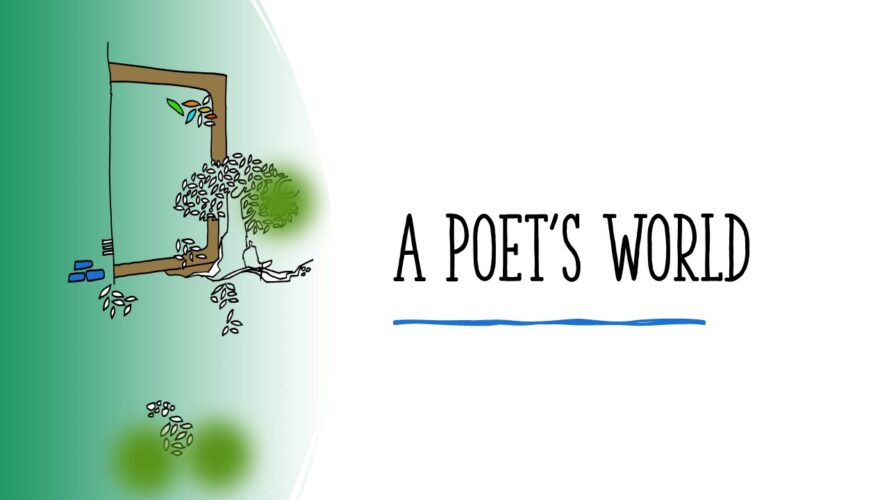


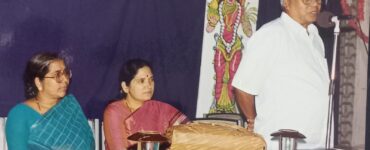
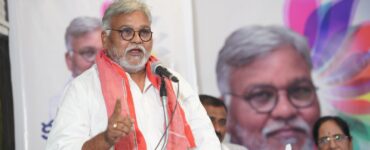
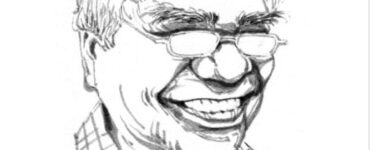


Add comment